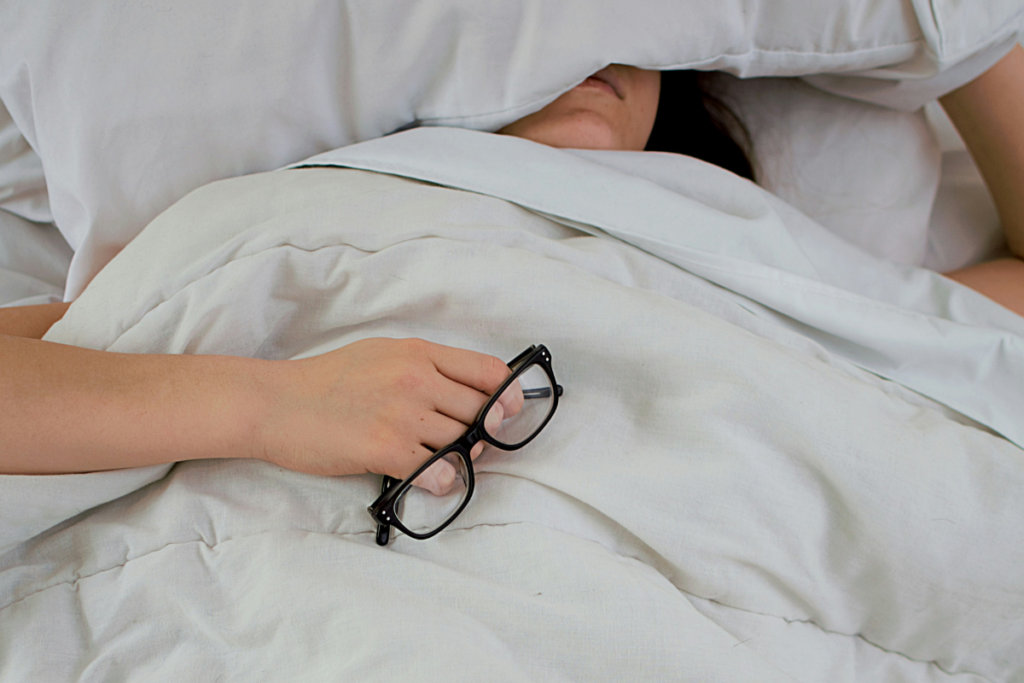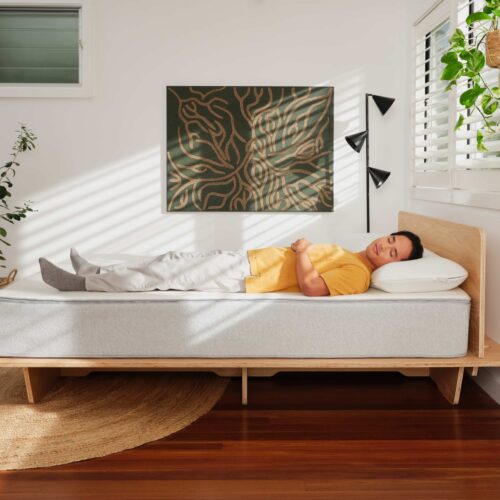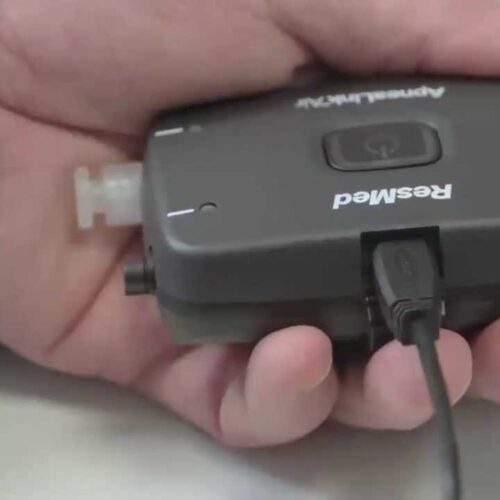If you are experiencing sleep disturbances or suspect that you have a sleep disorder, it is essential to undergo a sleep test to determine the cause of your sleep issues. In Sydney, there are several options available for sleep tests, and finding the right provider is crucial for accurate diagnosis and effective treatment. Understanding the importance of sleep tests and the different types available can help you make an informed decision.
Understanding the Importance of Sleep Tests
Sleep tests play a vital role in diagnosing sleep disorders and evaluating the quality of your sleep. They provide valuable information on various aspects of your sleep, including sleep apnea, insomnia, narcolepsy, and restless leg syndrome. By monitoring your brain activity, breathing patterns, heart rate, and other physiological parameters, sleep tests can identify abnormalities and help pinpoint the underlying cause of your sleep disturbances.
By understanding the importance of sleep test Sydney, you can take the necessary steps to find the right sleep test provider. Remember, an accurate diagnosis is the first step towards better sleep and improved overall health. So don’t hesitate to seek professional help if you suspect you have a sleep disorder.
Moreover, sleep tests are conducted in specialized sleep centers or clinics, where trained professionals monitor your sleep patterns throughout the night. These centers are equipped with state-of-the-art technology that allows for the accurate collection and analysis of data related to your sleep cycles and behaviors. The information gathered during a sleep test is crucial for healthcare providers to make informed decisions about your sleep health and overall well-being.
The Role of Sleep Tests in Diagnosing Sleep Disorders
Sleep tests are diagnostic tools used by sleep specialists to assess your sleep quality and identify any potential sleep disorders. By measuring brain waves, eye movements, muscle activity, and heart rate, sleep tests can determine if you have conditions such as sleep apnea, insomnia, or narcolepsy. These tests provide objective data that helps physicians accurately diagnose sleep disorders and develop personalized treatment plans.
Furthermore, sleep tests can also detect less common sleep disorders, such as parasomnias (abnormal behaviors during sleep) and circadian rhythm disorders. These conditions may not always be easily recognizable without the help of a sleep test, making it essential for individuals experiencing unexplained sleep disturbances to undergo a comprehensive evaluation to ensure proper diagnosis and treatment.

Health Risks Associated with Untreated Sleep Disorders
Untreated sleep disorders can have significant consequences on your overall health and well-being. Chronic sleep deprivation can increase the risk of several medical conditions, including obesity, diabetes, hypertension, heart disease, and stroke. Sleep tests are essential for detecting and addressing sleep disorders early on, reducing the risk of long-term health complications.
Additionally, untreated sleep disorders can impact your daily functioning, leading to daytime drowsiness, difficulty concentrating, irritability, and impaired performance at work or school. By undergoing a sleep test and receiving a proper diagnosis, individuals can access appropriate treatment options, such as continuous positive airway pressure (CPAP) therapy for sleep apnea or cognitive-behavioral therapy for insomnia, to improve their sleep quality and overall quality of life.
Different Types of Sleep Tests Available
There are different types of sleep tests available, depending on your specific symptoms and suspected sleep disorder. Understanding these options can help you choose the most suitable test for your needs.
Polysomnography: An In-depth Sleep Study
Polysomnography is a comprehensive sleep study conducted in a sleep center or laboratory. During the test, you will be monitored for various parameters, including brain waves, eye movements, muscle activity, heart rate, and breathing patterns. This allows sleep specialists to gather detailed information about your sleep stages, sleep continuity, and potential abnormalities, making it a valuable tool for diagnosing complex sleep disorders.
During a polysomnography, electrodes will be placed on your scalp, temples, and chin to measure brain activity. Belts will be wrapped around your chest and abdomen to monitor your breathing, and sensors will be attached to your legs to measure muscle activity. Additionally, a small device will be placed on your finger to measure your oxygen levels. All of these measurements are recorded throughout the night, providing sleep specialists with a comprehensive picture of your sleep patterns and any potential issues. Find more about oxygen at https://www.utoledo.edu/nsm/ic/elements/oxygen.html
Home Sleep Tests: Convenience and Comfort
Home sleep tests are portable devices that allow you to undergo a sleep study in the comfort of your own home. These tests typically measure breathing patterns, oxygen levels, and snoring. While home sleep tests may be suitable for detecting sleep apnea, they may not provide as comprehensive data as polysomnography. However, they offer convenience and cost-effectiveness for individuals with suspected mild to moderate sleep apnea.
When you opt for a home sleep test, you will be provided with a small device that you can wear on your wrist or finger. This device will monitor your breathing patterns and oxygen levels while you sleep. Some home sleep tests also come with a belt that can be worn around your chest to measure your breathing effort. The data recorded by these devices can then be analyzed by sleep specialists to determine if you have any breathing abnormalities during sleep.
Multiple Sleep Latency Test: Measuring Daytime Sleepiness
The Multiple Sleep Latency Test (MSLT) is conducted during the day to assess your daytime sleepiness and evaluate if you have narcolepsy. This test involves recording your brain activity and monitoring your sleep patterns during scheduled naps. MSLT measures the time it takes for you to fall asleep and the presence of rapid eye movement (REM) sleep, helping diagnose excessive daytime sleepiness and narcolepsy.
During an MSLT, you will be asked to take several short naps throughout the day, usually every two hours. Before each nap, electrodes will be placed on your scalp to measure brain activity. You will then be given a comfortable space to lie down and relax. The duration of each nap will be monitored, and any signs of REM sleep will be noted. The MSLT provides valuable information about your ability to fall asleep during the day and whether you enter REM sleep quickly, which can help diagnose conditions such as narcolepsy.
Choosing the Right Sleep Test Provider in Sydney
When it comes to selecting a sleep test provider in Sydney, it’s crucial to consider various factors to ensure you receive accurate and reliable results that can help improve your overall sleep health.
One important factor to consider is the technology and equipment used by the sleep test provider. State-of-the-art equipment can provide more detailed and precise data about your sleep patterns, leading to a more accurate diagnosis. Providers that invest in the latest sleep monitoring technology demonstrate a commitment to offering high-quality care to their patients.
Factors to Consider When Selecting a Provider
Firstly, consider the experience and expertise of the sleep test provider. Look for accredited sleep centers or labs with a team of qualified sleep specialists who have extensive knowledge in sleep medicine. Additionally, consider the availability of the sleep test facilities, the convenience of scheduling appointments, and the overall reputation of the provider.
Another crucial aspect to consider is the aftercare and support provided by the sleep test provider. A good provider should offer guidance and assistance in interpreting the results of your sleep test, as well as recommendations for treatment or further evaluation if necessary. Ongoing support can make a significant difference in managing sleep disorders and improving your quality of life.
Understanding the Credentials of a Good Sleep Test Provider
It is essential to verify the credentials and qualifications of the sleep test provider. Research their certifications, affiliations, and reviews from other patients. Ensure that the provider follows established guidelines and protocols for conducting sleep tests, guaranteeing accuracy and reliability of the results. To read more about reliability click here.
Preparing for Your Sleep Test
Before undergoing a sleep test, it is essential to be adequately prepared to ensure optimal test results. Taking the time to prepare can help you get the most accurate assessment of your sleep patterns and potential sleep disorders.
One crucial aspect of preparing for a sleep test is to familiarize yourself with the process. Understanding what to expect during the test can help alleviate any anxiety or concerns you may have. By knowing the steps involved and the purpose of each component, you can feel more at ease and cooperate better during the test.
What to Expect During a Sleep Test
A sleep test usually involves spending a night at a sleep center or setting up a home sleep test device. During the test, sensors will be placed on your scalp, face, chest, and legs to monitor various parameters. These sensors are painless and non-invasive, designed to record essential data without causing discomfort. The monitoring equipment tracks your brain waves, heart rate, breathing patterns, and other vital signs while you sleep.
Additionally, a video camera may record your movements throughout the night to provide further insight into your sleep behaviors. This comprehensive approach allows sleep specialists to analyze your sleep architecture and identify any abnormalities that may be affecting your rest.

Tips for a Successful Sleep Test
To ensure a successful sleep test, follow these tips:
- Avoid excessive caffeine and stimulant intake before the test.
- Maintain your regular sleep schedule leading up to the test.
- Wear comfortable clothing for sleeping.
- Inform the sleep test provider about any medications or health conditions you may have.
By adhering to these recommendations, you can optimize the accuracy of the test results and help healthcare professionals make informed decisions about your sleep health. Remember that the goal of the sleep test is to provide you with personalized insights and recommendations to improve the quality of your sleep and overall well-being.
Interpreting Your Sleep Test Results
Once your sleep test is completed, you will receive a report containing the results. Understanding the interpretation of these results is essential for effective diagnosis and treatment.
Upon receiving your sleep test results, it’s crucial to delve deeper into the intricacies of the data provided. The results are not merely numbers and graphs but a comprehensive snapshot of your sleep patterns and potential issues. Each metric measured during the test, from breathing patterns to brain waves, plays a vital role in painting a detailed picture of your sleep health.
What Your Sleep Test Results Mean
Interpreting sleep test results requires the expertise of sleep specialists. They will analyze the data collected during your sleep test and provide detailed insights into your sleep quality, any abnormalities, and potential sleep disorders. The results will guide your healthcare provider in developing an appropriate treatment plan tailored to your specific needs.
Furthermore, understanding the context of your results is key. Factors such as age, gender, and lifestyle habits can all influence the outcome of your sleep test. By considering these variables alongside the raw data, specialists can offer a more personalized and effective treatment approach.
Next Steps After Receiving Your Sleep Test Results
After receiving your sleep test results, schedule a follow-up appointment with your healthcare provider or sleep specialist. They will review the results with you, explain the diagnosis, and discuss the appropriate treatment options. This may involve lifestyle changes, medical interventions, or referral to a sleep disorders clinic for further evaluation and treatment.
Moreover, engaging in open communication with your healthcare team is paramount. Your active participation in discussing the results and treatment options can lead to a more collaborative and successful journey towards better sleep. Remember, the path to improved sleep health is a partnership between you and your medical providers.
Read about cost of sleep test on: Understanding Sleep Apnea Test Costs in Australia




